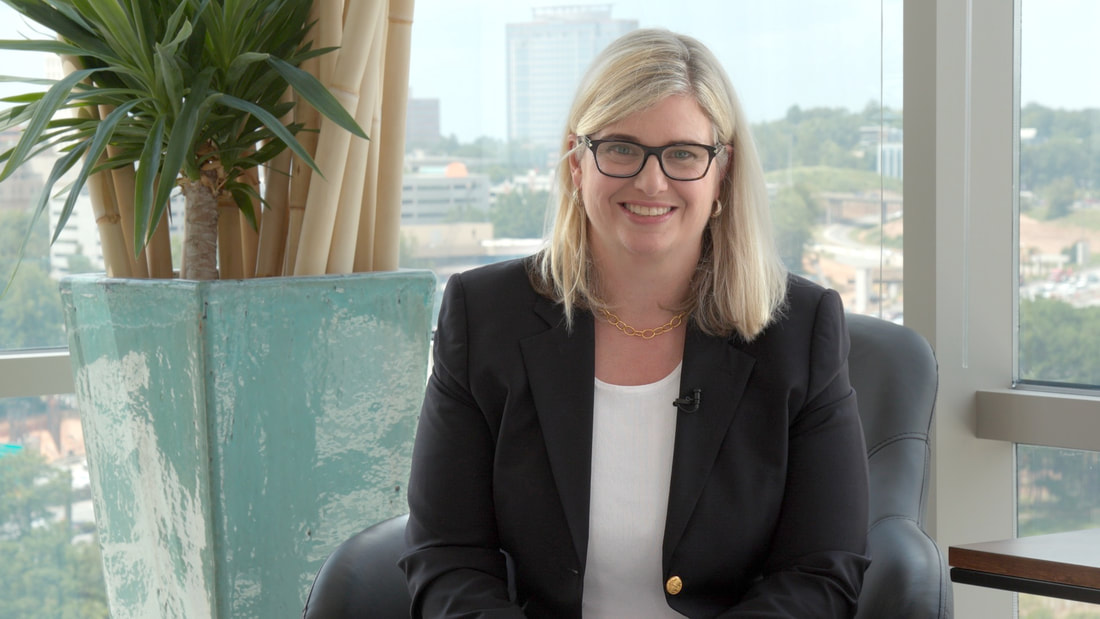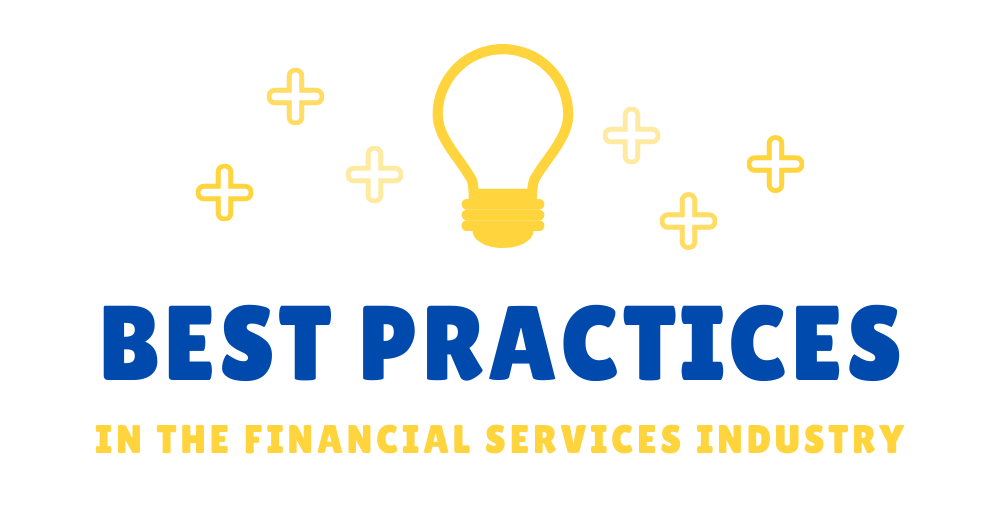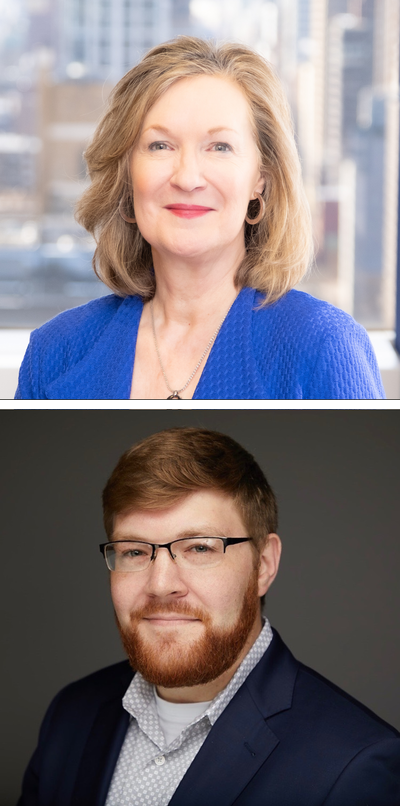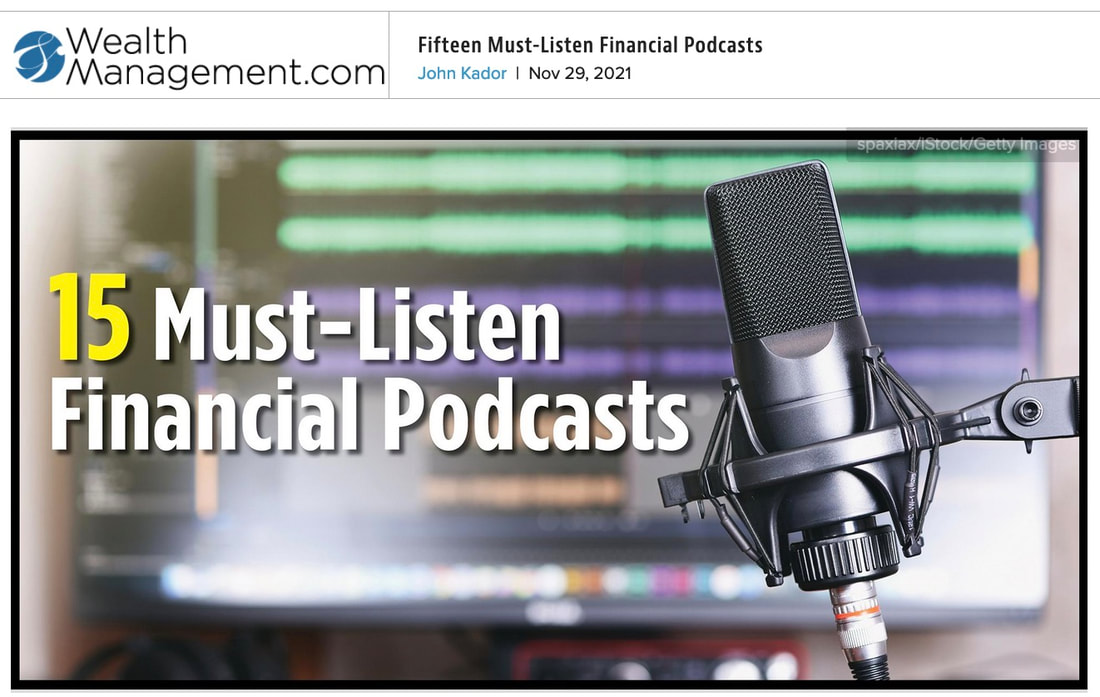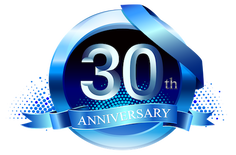|
Financial advisor Meredith Moore of Artisan Financial Strategies shares her backstory -- and how she has built a successful financial advisory firm that serves a loyal clientele in Atlanta. It hasn't always been easy but her grit and determination, coupled with a strong support system and good mental framework, have helped her navigate the waters, weather the storms and reach new shores. Meredith provides an array of tips and insights that any business owner can use to leapfrog the competition. Her story of overcoming adversity -- and not just surviving but thriving -- is inspiring.
Recorded in August 2020, during some of the most concerning days of the global pandemic and social unrest in the US, Meredith tells us that uncertainty, if not managed, can be the mental killer. She talks about her Morning Success Ritual, how she decided to focus on working with women breadwinners, and what she is doing to build strong connections with the right people in her hometown Atlanta.
Lean in and learn from Meredith in this interesting Swift Chat video interview. Transcript - Swift Chat with Meredith Moore
Six weeks after having my son, I was diagnosed with what's called a Glioblastoma, which most people are familiar with because that's what killed Ted Kennedy and John McCain. The reality is that most people don't ever recover from this form of cancer; there are really no known people that are still alive and highly functioning but I'm 15 years out now. I don't want to call it a burden. It's a responsibility that I carry." ~ Meredith C. Moore
Marie Swift: Welcome back everybody to another Swift Chat. I'm joined today by Meredith Moore and Meredith is a rock star advisor. I just love Meredith's energy. She is with Artisan Financial Strategies and Meredith you're the founder and CEO. Is that right?
Meredith Moore: That's correct. Swift: I love what you're doing around Designing Your Economic Masterpiece in a Man's World, the studies and the paper that you've done and all the cool things you're doing in your community in Atlanta. What's your mission? Moore: It all began because in our space for years, we've been told that we have to niche and you and I both know it takes bravery and courageousness to do that because you can't operate in scarcity mindset. For 21 years, I've been working with a lot of women breadwinners and I was starting to see a lot of trends in relationships and sociology when the woman was making more money. How the negotiations of what's mine and what's yours and how do we handle cash flow? It's called wage models actually, but who pays for what is essentially an easy way to frame it. So seeing these trends and just anecdotally and practice. Then I actually started working with Dorie Clark, who’s a very well-known thought leader in the business community. She's written a number of bestselling books, and I went through her course called Recognized Expert. So that's when I said, I'm going to take the risk, I'm going to go all in on women breadwinners. I’ve got to tell you, I questioned it in the beginning. In fact, I was sitting at a mastermind group with my coach, whom you know as well, Joe Lukacs. Of course, it's all guys at the table and I'm thinking, you know what, I'm doing this, but I don't want people to think I'm a man hater. That's not my intent. I still have mostly female clients and people are married. Finally, I came to the conclusion with everybody's support that you're not going to turn men off, but when you put intention to something that's who's going to first gravitate and that's where you put your marketing dollars. WOMEN BREADWINNERS AS A NICHE So I committed to this niche, and in doing so I knew I was sort of an expert again, more anecdotally, but I wanted to go deeper with it. So what I did was I, and understand this, I'm not an academic. I finished my undergraduate degree at Georgia Tech in industrial engineering and then I ran like all done other than like designation work in our space wanted nothing more to do with formal education. So I started reading dissertations, to give you that context. I haven't read a dissertation in my life, but I had a number of my virtual assistants pull me every bit of research that they could find that was out there on anything around power and money in a relationship. Like how money or balance sheets affected the dynamic and in terms of who paid for what. So we went through this very sort of laborious project of reading all of these studies and ultimately what I was trying to do was get interviews with the authors and these very renowned academics in order to sort of attach my name to theirs in terms of becoming a recognized expert in the space of women breadwinners. We literally whiteboarded this thing. We figured out on each of the subtopics around women breadwinners, who we needed to talk to, what their expertise was and then I saw it getting interviews. Which was really somewhat comical because getting through to these professors who were like 20 years younger than me was almost impossible where you can pick up a phone and call a vice president at a Fortune 100 here in Atlanta. But I couldn't get through to a 25 year old professor of sociology at Harvard. We figured it out with some of my other consultants. I literally reframed some emails and I ended up getting interviews from probably 20 different major researchers in England, Australia, all over the United States and Canada. If anybody had done anything in the space, I talked to them. I basically recorded all of these interviews and transcriptions, probably somewhat similar to what we're doing here. Then I took all the nuances from all those interviews and then from my experience, we rolled it up, put it pretty tight into this 40 page white paper that you referred to. It really encapsulated a lot of those things. What is interesting, Marie, is these academics were just as interested in me and what I saw as I was in them because I'm sort of boots on the ground, dealing with these families on a daily, weekly, monthly, annual basis. But it's tough for me to run Survey Monkeys to get specific ways of people thinking but it's interesting. So in answer to your question, my passion is women's engagement, not just financial literacy, that's a big thing, but the bigger thing is not just the knowledge, it's engagement in the financial aspects in the daily financials and how to negotiate these conversations with a spouse, even if you're making more money and not at the sort of exclusion of having some sort of feminine gender role, which I think is kind of BS. But that's really where it all comes to. Swift: It's so interesting to me because we've read about or heard this term couples and money for who knows how long. I've been in business for 30 years in this space and couples and money, I always just kind of snickered until I became the woman breadwinner in my family, the economic engine. Then there is a bit of a dynamic, a shift that happens. My husband and I've been married for a long time, and for the first 20 years, he was the economic engine. Now I'm the economic engine of the last 20 years and its working fine, but I think you pointed out a number of great ideas and just food for thought in this whole dynamic. Maybe you could share just a couple of things that you talk to your clients about when you're counseling them -- when there's this Breadwinner dynamic. And then talk to me too, about what you're doing in the local Atlanta community. Moore: Sure. You know, some of the key things, I first tried to really unwrap was how cash flow works because in fact in there I talk a lot about these -- we referred to it earlier, these wage models -- who pays for what. What I find, especially with this group, is it works better a lot of times when people do have separate accounts and maybe with how they share certain expenses, because there is direct correlation to not only how much of the bills are shared, but the other. I'm getting to my point. So it's bill sharing and also actually housework. The two correlations to what sociologists refer to as sort of equality or equity in a relationship. So, especially during the pandemic, we're all thinking who's doing the vacuuming right now and does that mean I have greater power in this relationship than this other person? But how the bills are paid are a piece of that and we talk a lot through that because it's also not uncommon where she might make more money, but he might have a bigger balance sheet. So I might have a female doctor, but he might be a systems analyst at a big technology company and have a lot of stock or restricted stock units. So it's how to negotiate these two things and understanding that cash flow does not equal net worth. And how we basically have these discussions is one is not better than the other; different things are brought to the table and to go into it without shame or without judgment. BRINGING ATLANTA LEADERS TOGETHER Swift: Well, you're known for bringing people together and good ideas. Tell me a little bit about the Atlanta community and your role with leaders and women leaders in particular. Moore: Sure. So, I went through the Leadership Atlanta program, which is kind of the preeminent leadership program in the country started here during civil rights era. I've gotten a lot of awards, but that was a high mark getting into that program, but, and that sort of kicked off me and became my fuel for needing to be around other ambitious goal oriented people that were doing big things, and it didn't need to be in the financial advisory space and it didn't even necessarily equate to income. Just high ambitious people, whether its government nonprofit for profit, which sparked back to my niche, so what I wanted to do was to really further my space that I was working with. I created a luncheon series called Interesting Women Leaders in the ATL. And of course the beginning of 2020, it started out -- it was actually a live lunch. But along comes 2020 so we had to shift it to a virtual luncheon. I refused to use Zoom, so we used another platform that a client of mine, who's a member of YPO, had recommended called Circles because I wanted to keep the intimacy of the group. I moderate a couple of questions around wins and goals to where each person has a very different background and can really talk about things at a deeper level. And what I'll say is, and Marie, I'm sure you can echo this – there are a thousand women's groups. But the reality is, most of them are sort of middle market, middle management women that go, not that are senior leadership, founders, CEOs, C-suite types. So in any of my given luncheons, I just don't know who's going to RSVP for which date and so we've had some of these luncheons for the conversation. I've had some where they tend to be a little bit older and it was more around what are we doing with sort of our second act. Retiring, you know, as maybe a major school superintendent or major CEO and so what's next. So the themes and all of them have been drastically different, but I think that's what keeps it interesting. But I mean, there's a good mix of for-profits, nonprofit and we've had a few attorneys general. We've had a major school superintendent, a few major city council members -- it just changes up, which I love. Swift: Being active and engaging with people with authenticity when you don't have a business agenda, but just being interested in other people and bringing them together. I have to imagine that it has a business payback for you, but it's not your primary motive for doing this. Moore: Right. I like Leadership Atlanta -- it invigorates me being around people like that. As Jim Rohn used to always say, “You're the average of the five people you're around with the most.” So I've been very deliberate in my life, like who I put in my life so that I can continue to push myself regardless of what that might be. The “ask” is at the end of the lunch, I get all their phone numbers so I'm able to text. I do send them my white paper. Just because that is one of the questions I asked my luncheon, we all discussed a big win that we had in 2019 and my big win happened to be that white paper. Since it's likely relevant, I don't know that it is officially, but likely relevant to a lot of the attendees, I go ahead and send that out. Just to let people know I'm open for business, and that's it. There's no pitching, there's no real discussion on that. The reality is I believe, especially with women, when you play at a high level, nobody really wants to be pitched. And the chances are there's like a 95% chance they're going to already have advisors, but I want to have the relationship and be there when something does happen or if they want that second opinion. Maybe my brand will resonate with them -- I've certainly heard that a few times. So it's just about building back -- to use the word tribe. I'm building my tribe that aligns with my niche and that's the platform in which I do it. CREATING HER OWN ECONOMY Swift: You know I've had some good conversations recently with Coach Joe Lukacs and he talks about building your own economy, creating your own economy, setting your mind right and having the morning protocols and all that. So how long have you been a part of Joe's Magellan Network? Moore: Since it started essentially, and he calls it the Morning Success Ritual. My MSR, I'm pretty religious about it. I certainly look at my quarterly game plan. I journal, I do my very best to work out, especially with COVID times. I have a new found gym in my basement with a nice new kettlebell set. I do have my routine and, I mean, I, again, sort of grew up with Joe's protocols and that's a way to really start your day. It's not letting news in and especially now, because that can make things go sideways and right now, everything I believe is about keeping your energy up because it just seems like everything is 10 X more exhausting than it was before. So I try to do these things and back to the luncheons, I really enjoy those. The last thing we want to have to do is do more thing that we hate doing. So, I try to build my calendar out as such and try to have fun with some things. OVERCOMING ADVERSITY Swift: It's so important to be around the right kind of people -- the people who fill you up, not the people who drag you down or take away your power, your energy. So you're one of those people for me -- I love your whole vibe. You're just so authentic. And I wonder in the last few minutes that we have together, Meredith, I know your backstory, but are you willing to share just a minute or two talking about what made you, the woman you are today? Your grit, your tenacity, your wisdom, your grounding. Moore: I always say we're a compilation of our experiences. Then I think people sometimes are quick to put labels in order to understand somebody. So I think what you're specifically referring to is the 2005 to 2008 period in my life. The way I tell the story, and I used to give keynotes on this and I did paid speaking for a number of years, but the message stopped resonating with me as much. But in answer to your question, so I was experiencing a successful career, early on as well, and I was kind of rising to the top and, you know, I guess I was the perfect person as most people saw it from the outside. I got pregnant with my son and had this seemingly perfect marriage and blah, blah, blah, the stereotypical, whatever. Six weeks after having my son, I was diagnosed with what's called a Glioblastoma, which most people are familiar with because that's what killed Ted Kennedy and John McCain. Editor’s Note: Glioblastoma is the most aggressive type of cancer that begins within the brain. Fewer than 3% to 7% of people survive longer than five years. Moore: The reality is that most people don't ever recover from this form of cancer; there are really no known people that are still alive and highly functioning but I'm 15 years out now. At least none that are public. I don't want to call it a burden. It's a responsibility that I carry. I probably talked to two or three families; friends of friends, will phone me and say, “Hey, will you talk to so and so for me?” But the bigger part of that is, I just had my son, I had two brain surgeries, had a lifetime dose of radiation to my brain, did a year of chemotherapy and was still running my business. During that period of time, my mom passed away when I was in the middle of chemotherapy for breast cancer and I got divorced about nine months after that. So it was a lot in a three month period and really the interesting thing, and I'm sure we could go on for another hour about this, but a lot of people will come up and say, well, this happened to me -- it wasn't as bad as what happened to you. But right now is a perfect example to tell you that everything is relative. This time (August 2020 during the global pandemic) is the closest thing that I have to that period, because I think it's all about uncertainty and what we're all feeling. And it's a very similar time, but I'm not fighting for my life right now, but it's still emotionally feels the same way. Swift: Wow, thank you for sharing that with us. I just get so inspired talking to other people about why they do what they do and what made them who they are, so I really appreciate your candor and your just willing to share from the heart what you're doing and I so appreciate that you would come and share your thoughts with my tribe through a Swift Chat. Is there anything that you would like to say as we close down the conversation for today? Moore: The way I roll and what I believe we all should do is we have an obligation to ourselves and our family and, again, our tribe, to be the very best people that we can be and serve our clients, serve our families in the very best way. Swift: To be sure. And if we can lift other people up. It's not about us, it's about lifting other people up together. We can get through all of these challenges and this COVID thing, it might be longer than we think, but we're going to get through it. Moore: Absolutely. Comments are closed.
|
About
|
|
Stay Connected
|
Phone: 913-649-5009
©2023 Impact Communications, Inc.
|

